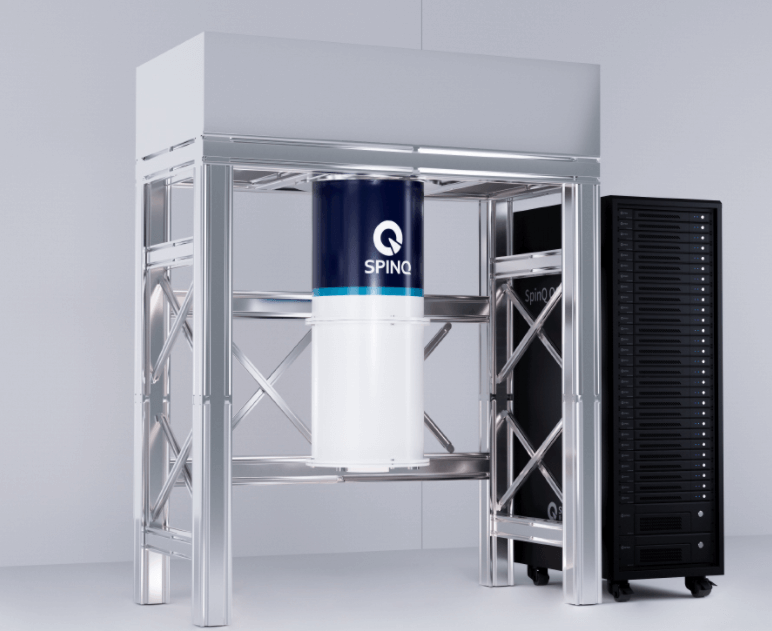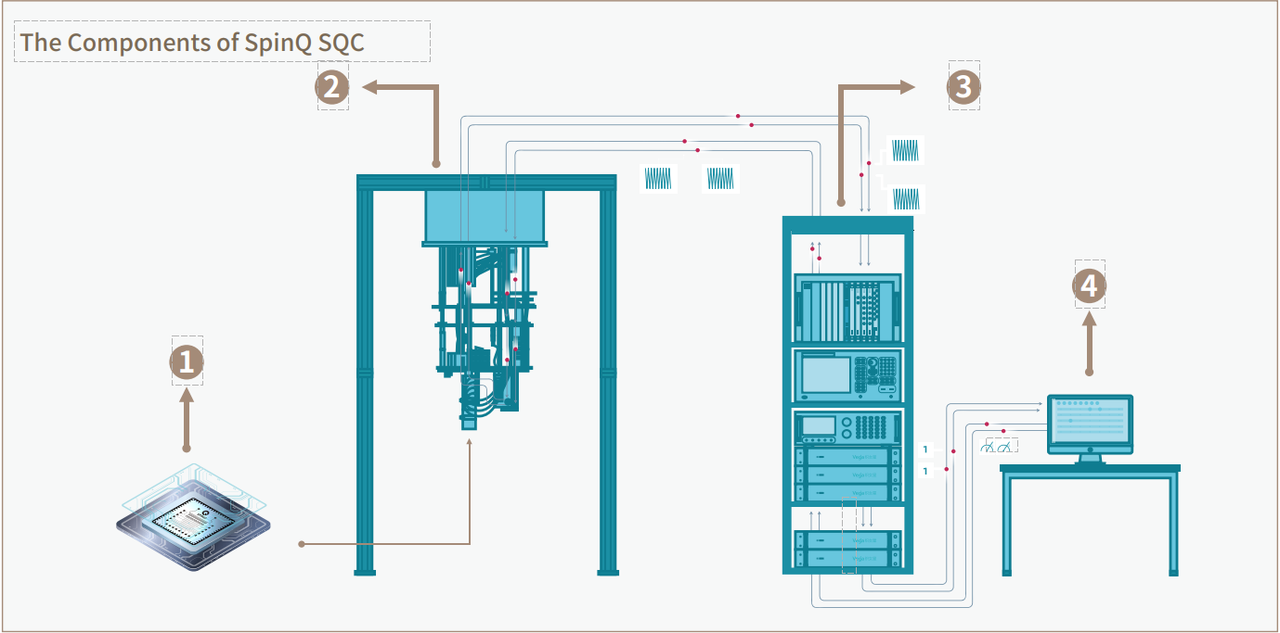Superconducting Quantum Computers: Industry's Top Choice
2025.01.08 · Blog quantum advantagequantum readyquantum supremacy
Superconducting Quantum Computer: The Most Mature Quantum Technology
Superconducting quantum computers represent the most advanced and widely adopted quantum computing technology today.
Leveraging superconducting circuits and Josephson junctions, these systems achieve high-speed operations with exceptional accuracy. Their maturity is evidenced by their successful applications in optimization, material simulation, and machine learning.
Leading quantum computing companies like SpinQ and IBM are at the forefront of this superconducting quantum technology, showcasing its reliability for solving complex, real-world problems.
Principles of Superconducting Quantum Computers
Superconducting quantum computers operate based on superconducting circuits that use Josephson junctions to create and control quantum bits (qubits).
These circuits leverage quantum phenomena such as superposition and entanglement to perform computations. By cooling the system to near absolute zero, superconductivity eliminates electrical resistance, enabling precise qubit manipulation for quantum operations.
Unveiling SpinQ: Pioneering the Industrialization and Accessibility of Superconducting Quantum Computers
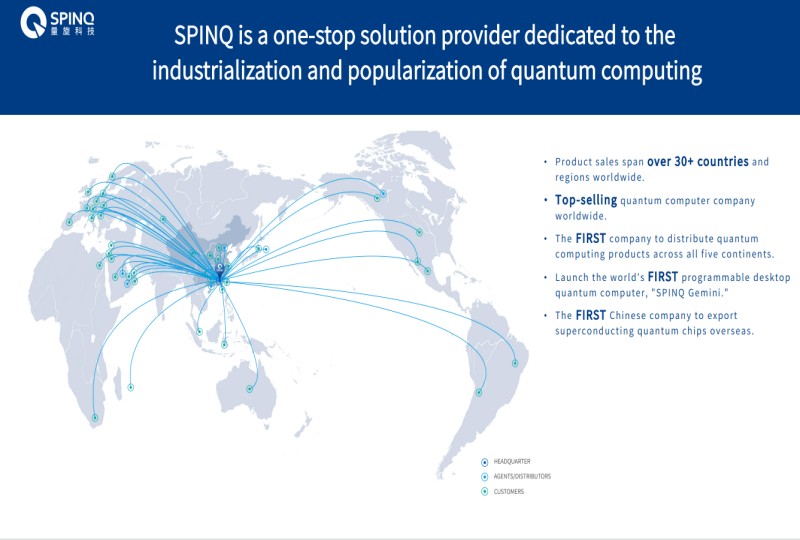
SpinQ is a leading quantum computing company dedicated to advancing the industrialization and accessibility of quantum computing and quantum computers.
Focused on developing cutting-edge comprehensive quantum computing solutions, SpinQ applies superconducting quantum computing technology across various fields, including research, finance, artificial intelligence, biomedicine, and more.
By providing high-performance and user-friendly quantum computing products and services, including superconducting quantum computers, chips, quantum cloud services, and quantum software, SpinQ strives to ensure industries benefit from the transformative advantages of quantum technology, driving its widespread adoption.
Exploring SpinQ's Superconducting Quantum Computer: Making Quantum Technology Practical
Introduction to SpinQ's Superconducting Quantum Computer
SpinQ builds practical superconducting quantum computers with high-performance quantum processors to address real-world challenges efficiently, serving both research and commercial applications.
These superconducting quantum computers utilize superconducting circuits with Josephson junctions, where qubits are formed through macroscopic quantum effects. Key advantages include scalable qubits, high-fidelity quantum gates, and controllable qubit coupling, making them the most rapidly advancing and industrialized quantum platform.
Moreover, SpinQ's user-friendly systems are tailored for effortless integration into existing infrastructures, empowering businesses to maximize the potential of quantum computing technology.
The Components of SpinQ's Superconducting Quantum Computers
1. Superconducting Quantum Processing Unit (QPU)
The Superconducting Quantum Processing Unit (QPU), also called quantum chips, is the core computing power of superconducting quantum computers. It is used to implement quantum algorithms and quantum programs.
2. Milli-Kelvin Cryogenic Systems (~10 mK)
The Milli-Kelvin Cryogenic Cooling Systems (~10 mK) provide the necessary operating environment for superconducting quantum computers.
3. Quantum Control & Measurement System
It controls the QPUs in superconducting quantum computers and includes RF control electronics for managing and measuring superconducting qubits.
4. Quantum Operating System, Quantum Algorithm and Quantum Software
SpinQit: It is a general-purpose quantum computing programming framework and development toolkit. It includes automated QPU calibration and characterization programs, as well as Python APIs for QCM systems.
SPINQ QPU EDA: It is highly automated superconducting QPU EDA design software that generates quantum devices using parameterization and advanced automatic wiring algorithms.
Together, these components form a comprehensive platform that delivers fast operations and high coherence rates for efficient quantum computing.
Specifications of SpinQ's Superconducting Quantum Computer
-
Number of qubits: 20
-
Single-qubit gate fidelity: 99.9%
-
Double-qubit gate fidelity: 98%
-
Average decoherence time T1: 30 us
-
Space: 25 square meters
-
Weight: 1500 kg
-
Height: 3.0m
-
Average power consumption: 20 kW
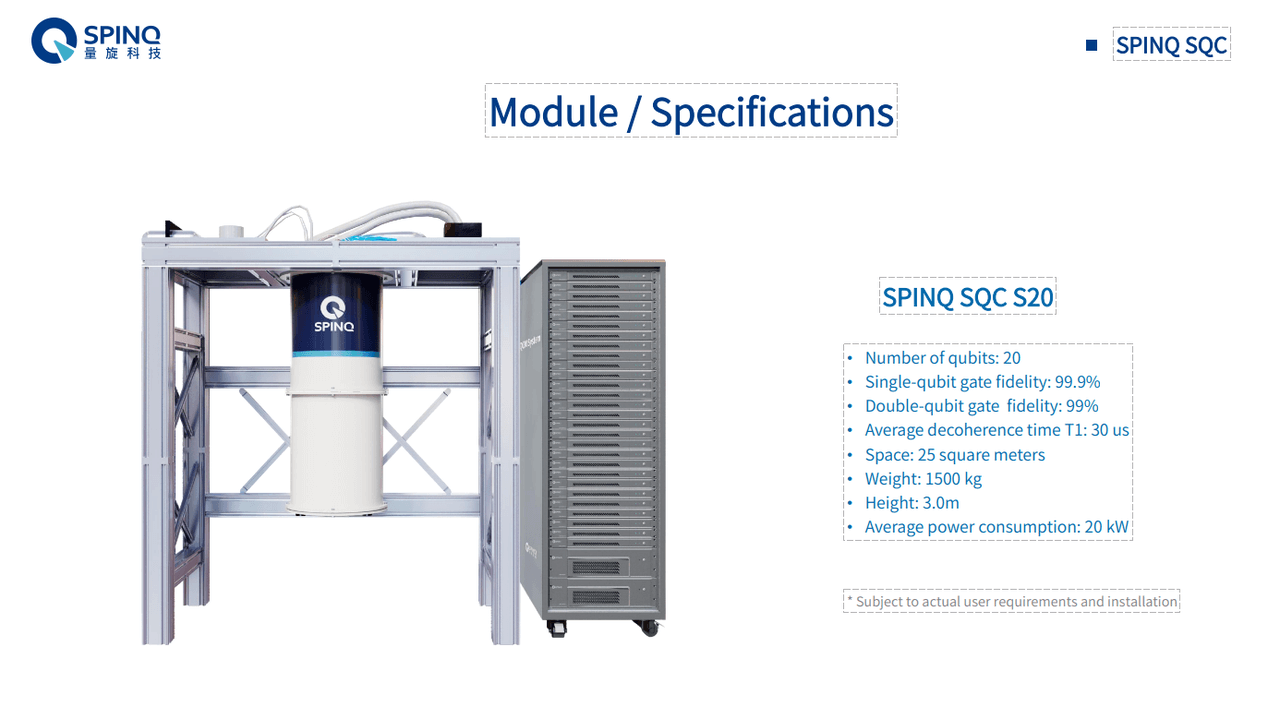
Why Choose SpinQ's Superconducting Quantum Computer & Services
1. Long Qubit Lifetime & High-Fidelity Gates
SpinQ superconducting quantum computers support various quantum chips, including those with 20 high-fidelity qubits.
These systems are ideal for complex tasks in artificial intelligence, biomedicine, finance modeling, facilitating advanced quantum research and commercial applications.
2. High-Speed Gate Operation
Although superconducting qubits have relatively short lifetimes, our system compensates with ultra-fast logic gates, achieving higher CLOPS (circuit layer operations per second). Gate times in the tens of nanoseconds—less than one-thousandth of a qubit's lifetime—enable the efficient execution of advanced quantum algorithms.

3. Comprehensive, Integrated Service
We prioritize user needs with full-service support, including consultation, supply, installation, debugging, lifelong maintenance, and technical support.
Our service covers the selection and installation of quantum chips, quantum measurement and control systems, dilution refrigerators, accessories, and the SpinQit programming framework.
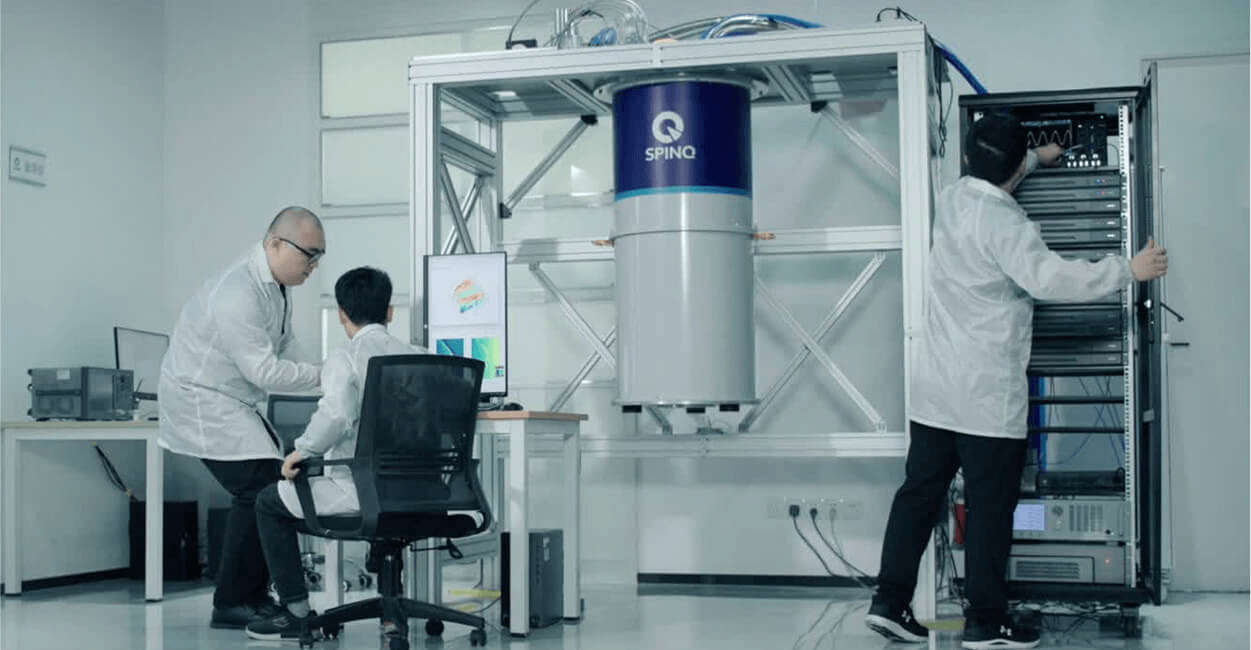
4. Superior Quality, Outstanding Value
Utilizing our in-house production line to standardize and mass-produce quantum chips, along with our internally developed quantum control systems, we’ve significantly enhanced the quality and cost-effectiveness of our superconducting quantum computers, earning recognition in China and globally.
FAQs
1. What are Microwave Techniques in Superconducting Quantum Computers?
Microwave techniques in superconducting quantum computers involve using microwave signals to control and manipulate qubits.
These signals are applied to superconducting circuits to perform operations, such as flipping qubit states or entangling multiple qubits. Microwaves are crucial for high-fidelity gate operations and qubit coherence, making them an essential component of superconducting quantum computing systems.
2. How Much Does a Commercial Superconducting Quantum Computer Cost?
The cost of a commercial superconducting quantum computer can range from several million to tens of millions of dollars, depending on factors such as the number of qubits, system complexity, and additional components like cryogenic cooling systems. Pricing can vary based on customization, installation, and ongoing maintenance.
With nearly 100 million RMB invested in building a superconducting quantum chip laboratory, SpinQ ensures full control over the entire quantum computing process. As a result, our superconducting quantum computers offer exceptional affordability and cost-effectiveness.
Contact us today to explore how our advanced superconducting quantum computer can benefit your business.
Featured Content


